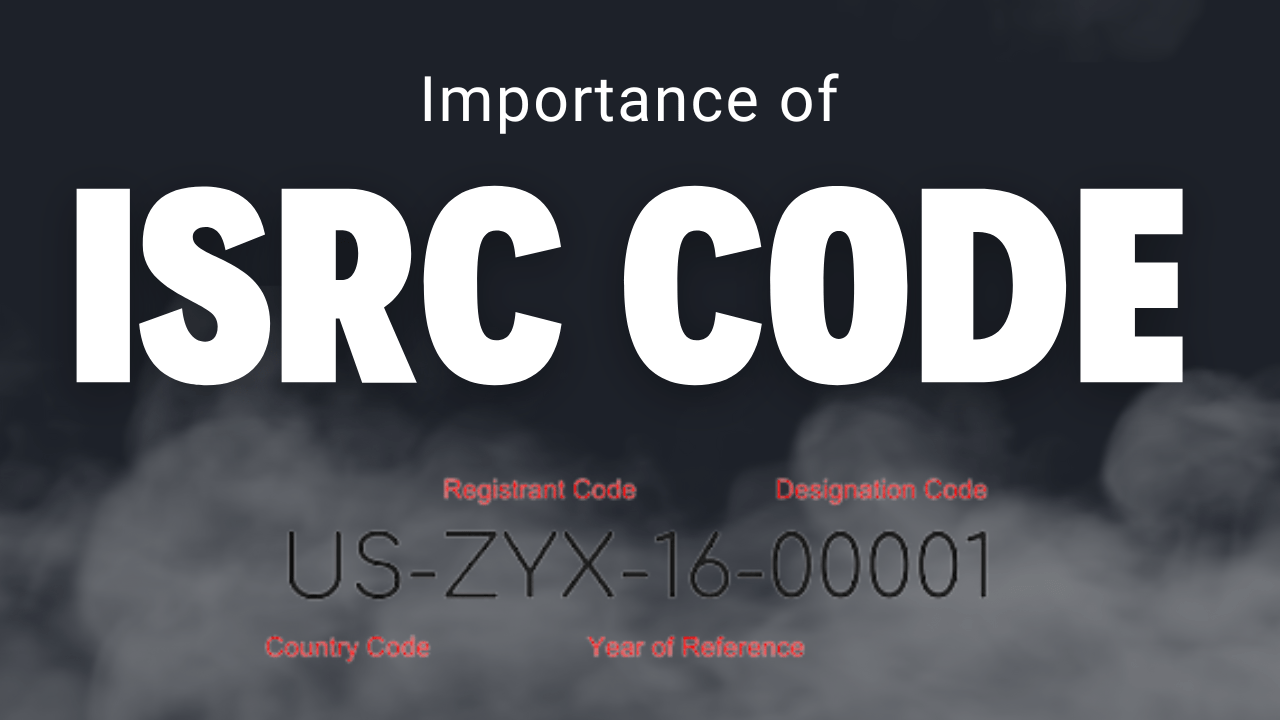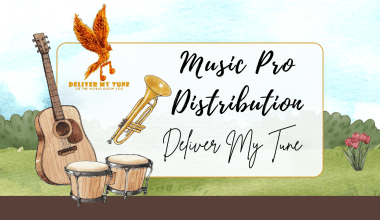In today’s digital music landscape, managing and distributing your music effectively is key to reaching a global audience and maximizing revenue. A crucial component of this process is the ISRC code, a unique identifier that plays a vital role in tracking and monetizing your music. This blog explores the importance of ISRC codes, how they function, and why they are essential for artists and rights holders in the music industry.
What is an ISRC Code?
An International Standard Recording Code (ISRC) is a 12-character alphanumeric code that serves as a unique identifier for a specific recording. This code acts as a digital fingerprint, enabling the precise identification and tracking of music across various platforms and formats. The ISRC code is not just a technical tool; it is a foundational element in the music industry, facilitating everything from royalty collection to the protection of intellectual property.
Structure of an ISRC Code
The ISRC code is composed of four distinct parts:
- Country Code (2 characters): Identifies the country where the ISRC code was registered, e.g., IN for India or US for the United States.
- Registrant Code (3 characters): Unique to the registrant (usually a label or independent artist), this code helps in identifying the entity responsible for the recording.
- Year of Reference (2 digits): Indicates the year in which the ISRC was assigned to the recording, not necessarily the year of release.
- Designation Code (5 digits): A unique number assigned to each recording by the registrant.
For example, in the ISRC code “US-S1Z-99-12345”:
- US stands for the United States,
- S1Z is the unique code for the registrant,
- 99 indicates the year 1999, and
- 12345 is the unique designation code for the recording.
The Importance of ISRC Codes in the Music Industry
Tracking and Monitoring
One of the primary importance of ISRC codes is their ability to facilitate precise tracking and monitoring of music usage. This capability is essential for understanding the reach and impact of your music. Whether your song is being streamed on Spotify, downloaded on iTunes, or played on radio stations, the ISRC code ensures that each instance is accurately recorded. This data is invaluable for artists and labels, as it provides insights into listener demographics, geographic reach, and overall popularity.
Royalty Collection
ISRC codes are instrumental in the process of royalty collection. They ensure that artists and rights holders are fairly compensated for the use of their music. When a song is played on a streaming platform, the ISRC code helps track the number of plays, which are then converted into royalties. This process is crucial in today’s digital music ecosystem, where streaming has become a significant revenue source for artists. Without ISRC codes, accurately tracking and distributing these royalties would be challenging, leading to potential losses for artists.
Protection of Intellectual Property
The importance of ISRC codes extends to protecting intellectual property. By providing a unique identifier for each recording, ISRC codes help prevent unauthorized use and ensure that rights holders can assert their ownership. This protection is particularly vital in the digital age, where music can be easily shared and distributed online. In case of disputes over music rights, ISRC codes serve as a crucial piece of evidence, helping to establish the ownership and originality of a recording.
How to Obtain an ISRC Code
Acquiring an ISRC code is a relatively straightforward process. Artists and labels can obtain these codes through various channels, depending on their country and the nature of their release. Here are the common methods:
- National ISRC Agencies: Most countries have a designated national ISRC agency responsible for issuing these codes. Artists and labels can register with these agencies to obtain ISRC codes for their recordings.
- Online Distributors and Aggregators: Independent artists often use online distributors like CD Baby, TuneCore, or DistroKid, which provide ISRC codes as part of their distribution services. These platforms handle the process of assigning ISRC codes, ensuring that each track is properly identified and tracked.
- Direct Registration: Some artists and labels may choose to register directly with the International ISRC Agency, especially if they manage a significant volume of recordings.
Once you have obtained your ISRC codes, it’s crucial to use them consistently across all platforms and formats. This consistency ensures accurate tracking and royalty collection, maximizing the financial benefits of your music.
The Role of ISRC Codes in Digital Distribution
Digital distribution has revolutionized the way music is consumed and monetized. As music moves increasingly online, the importance of ISRC codes has become more pronounced. These codes play a vital role in ensuring that music is correctly cataloged, tracked, and monetized across digital platforms.
Streaming Platforms
Streaming services such as Spotify, Apple Music, and YouTube are now the primary means by which many listeners consume music. ISRC codes are essential for these platforms, as they use the codes to manage their vast libraries of songs. Each time a song is streamed, the ISRC code ensures that the correct recording is identified, enabling accurate tracking and royalty distribution. This process not only ensures that artists are compensated fairly but also helps streaming platforms manage their content efficiently.
Digital Sales and Downloads
In addition to streaming, digital sales and downloads remain a significant revenue stream for artists. Platforms like iTunes and Amazon rely on ISRC codes to track sales accurately. When a customer purchases a track, the ISRC code ensures that the sale is recorded correctly and that royalties are paid to the appropriate parties. This tracking is vital for maintaining transparent and accurate financial records, ensuring that artists receive their due compensation.
ISRC Codes and Music Licensing
Licensing is a critical component of the music industry, providing artists with opportunities to earn money through the use of their music in various media. The importance of ISRC codes in this context cannot be overstated. These codes facilitate the tracking and management of licensed music, ensuring that rights holders are properly compensated.
Synchronization Licenses
Synchronization (sync) licenses allow music to be used in conjunction with visual media, such as films, television shows, commercials, and video games. ISRC codes play a pivotal role in the administration of these licenses. They provide a unique identifier for each recording, ensuring that usage is accurately tracked and that royalties are distributed correctly. Sync licensing can be a lucrative revenue stream for artists, making the accurate tracking provided by ISRC codes essential.
Mechanical Licenses
Mechanical licenses pertain to the reproduction of music, whether through physical formats like CDs and vinyl or digital downloads. ISRC codes are integral to managing these licenses, as they ensure that each reproduction is accurately tracked. This tracking is crucial for calculating royalties, particularly in cases where music is reproduced in large volumes. By using ISRC codes, rights holders can ensure that they receive fair compensation for every copy of their work.
How to Register Your ISRC Codes
Registration is a crucial step in the lifecycle of an ISRC code. Proper registration ensures that your music is recognized and tracked across all relevant platforms and organizations. Here are the key steps to registering your ISRC codes:
- National ISRC Agencies: Start by registering your ISRC codes with the national ISRC agency in your country. This registration makes your codes official and ensures they are recognized globally.
- Digital Distribution Platforms: When uploading your music to digital distribution platforms, make sure to include the ISRC codes in the metadata. This inclusion is essential for tracking and royalty collection.
- Performance Rights Organizations (PROs): Register your ISRC codes with PROs such as ASCAP, BMI, or PRS. These organizations track the public performance of your music and ensure that royalties are collected and distributed.
Best Practices for Using ISRC Codes
To maximize the importance of ISRC codes in your music career, follow these best practices:
- Assign Unique ISRC Codes to Each Recording: Ensure that each recording, including different versions or remixes, has a unique ISRC code. This practice helps in tracking and distinguishing between different versions of a track.
- Maintain Detailed Records: Keep a comprehensive record of all your ISRC codes, along with the associated recordings and metadata. This record will be invaluable for managing your catalog and resolving any disputes.
- Consistent Use Across Platforms: Use the same ISRC codes consistently across all platforms and formats. This consistency ensures accurate tracking and maximizes your royalty collection.
The Future of ISRC Codes
As the music industry continues to evolve, the importance of ISRC codes is set to grow. Advances in technology, such as blockchain, promise to enhance the functionality and reliability of ISRC codes. Here are some future developments to watch:
Blockchain Integration
Blockchain technology offers a promising future for the music industry, particularly in the area of rights management and royalty distribution. By integrating ISRC codes with blockchain, artists can ensure a transparent and secure tracking system. Blockchain can provide an immutable record of all transactions, making it easier to verify the use and ownership of music. This integration could also streamline the process of royalty payments, ensuring that artists receive their due share promptly and accurately.
Enhanced Metadata Management
The role of metadata in the digital music ecosystem is becoming increasingly important. Metadata, including ISRC codes, plays a crucial role in the discoverability and management of music. As the volume of digital music continues to grow, the need for accurate and comprehensive metadata becomes more critical. Future developments may include more sophisticated tools for managing and analyzing metadata, helping artists and rights holders optimize their music’s visibility and monetization.
Conclusion
The importance of ISRC codes cannot be overstated. They are an essential tool for tracking, managing, and monetizing music in the modern digital landscape. Whether you’re an independent artist or part of a major label, understanding and utilizing ISRC codes is crucial for protecting your rights and maximizing your revenue. By following best practices and staying informed about the latest industry developments, you can ensure that your music reaches a global audience and that you receive fair compensation for your work.
For further reading, explore these related articles:
- What is an UPC and ISRC Code?
- How YouTube Royalties Work?
- Why is There a Need for Digital Aggregators in Music Distribution?
For additional resources on music marketing and distribution, visit Deliver My Tune.






